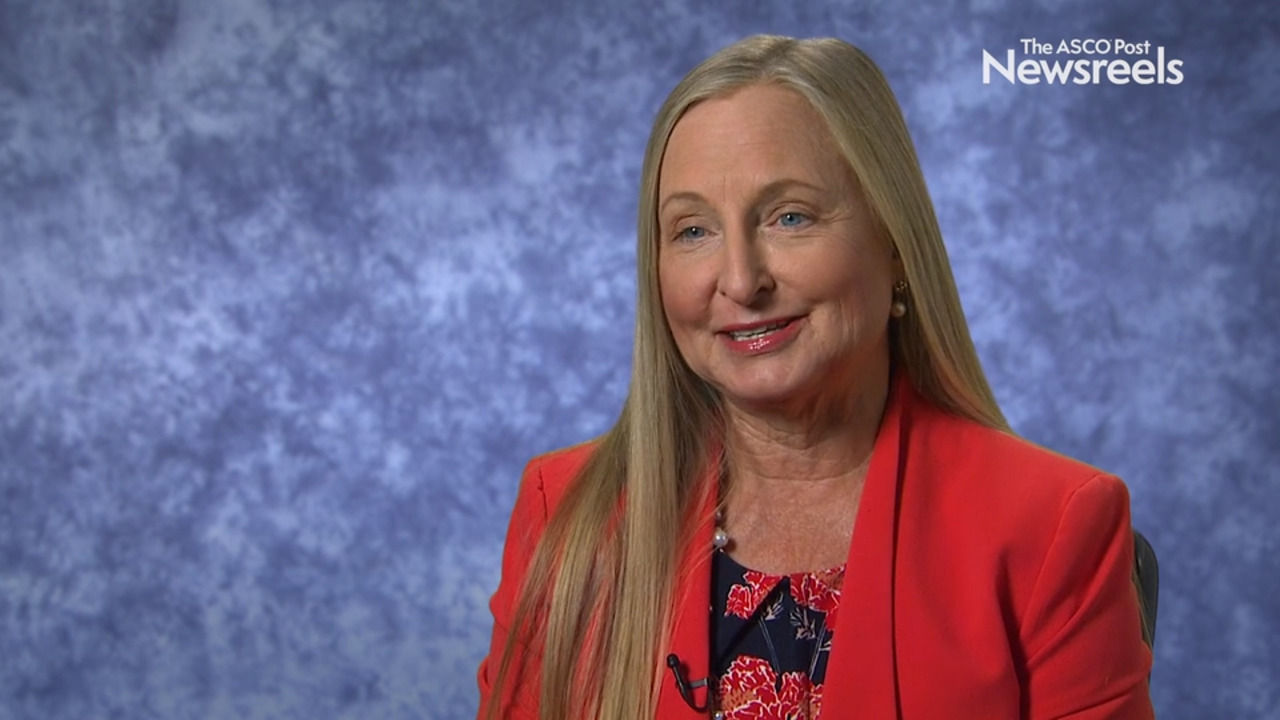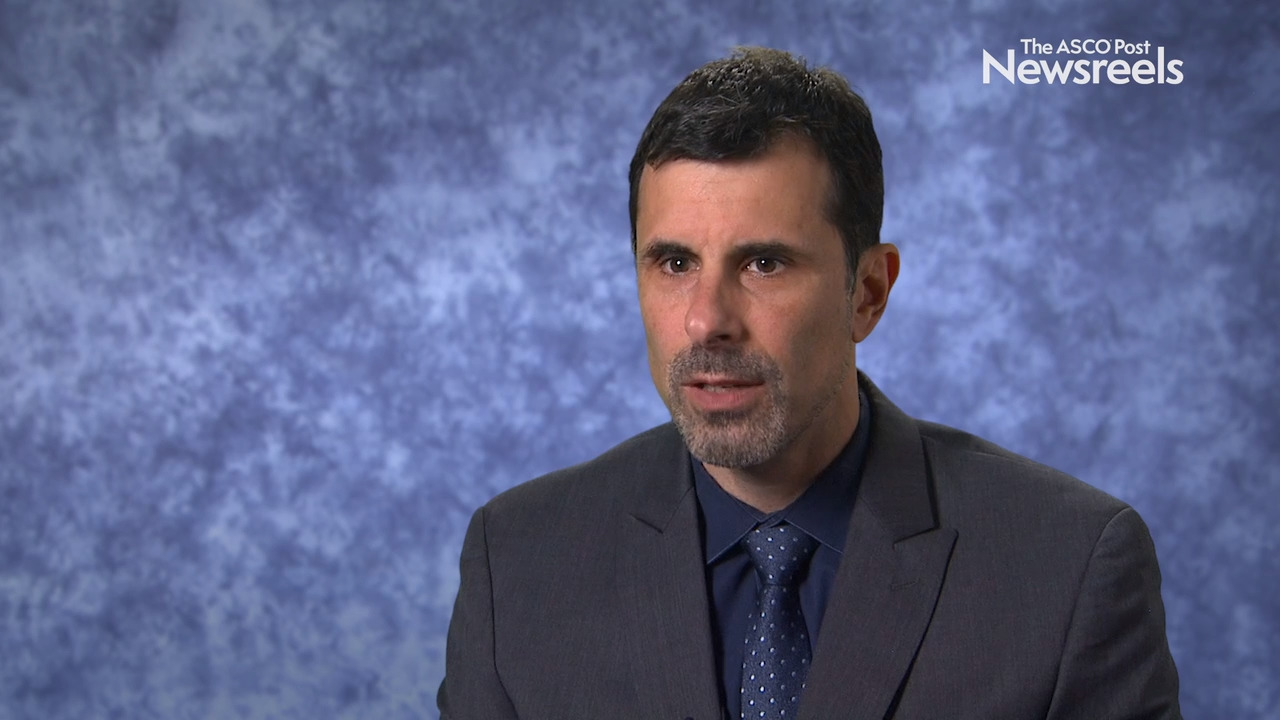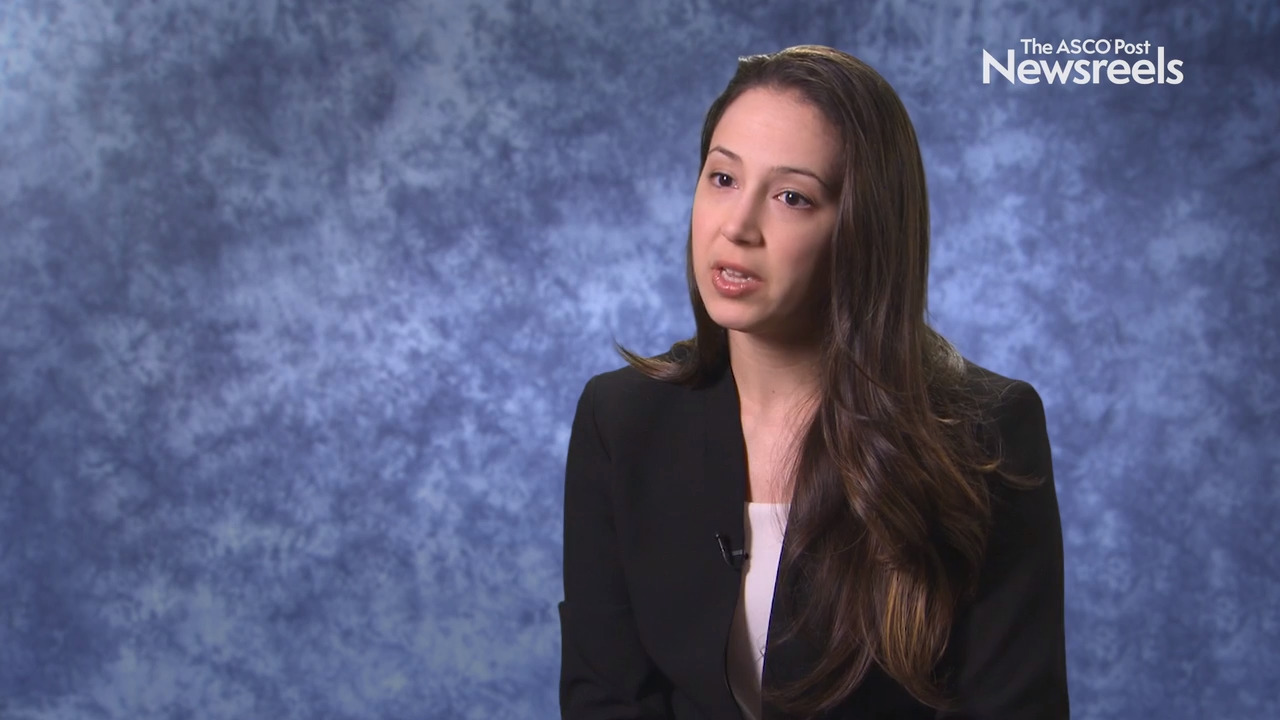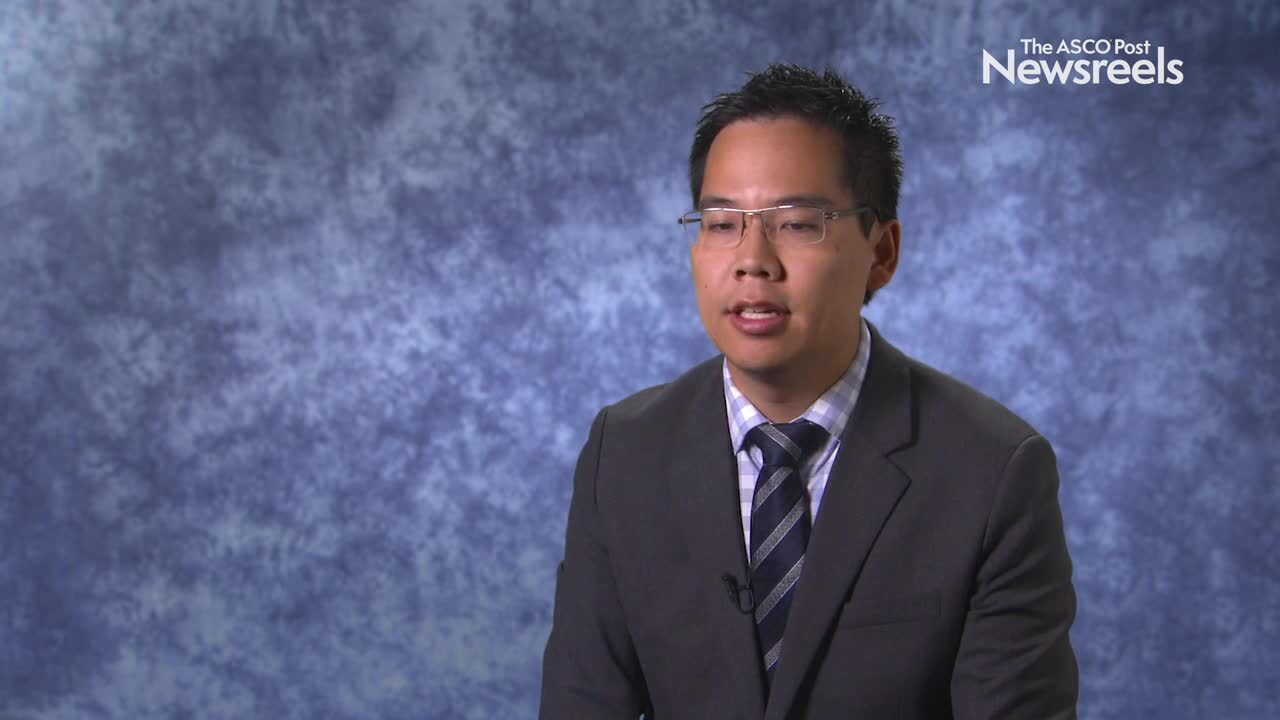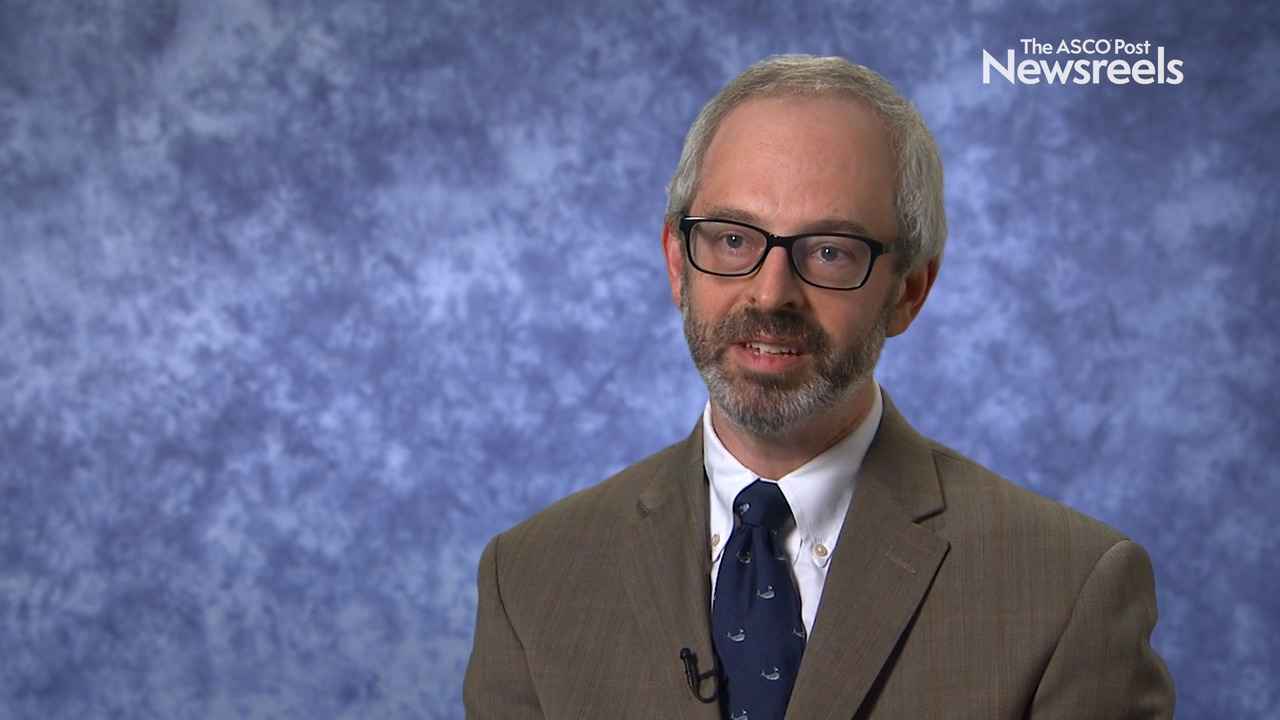Lauren M. Hamel, PhD, on Race and Doctor-Patient Behavior
2019 Quality Care Symposium
Lauren M. Hamel, PhD, of Wayne State University/Karmanos Cancer Institute, discusses her findings on the ways in which nonverbal behavior between doctors and patients of the same or different races can affect their relationship, quality of communication, and ultimately, perhaps outcomes as well (Abstract 169).
Linda D. Bosserman, MD, of City of Hope, discusses guidelines vs pathways, how to personalize pathways, integrated diagnostics, supportive care regimens, and financial guidance for patients with cancer.
Bernardo H. L. Goulart, MD, of Seattle Cancer Care Alliance, discusses his findings that high out-of-pocket costs for oral tyrosine kinase inhibitors may lower survival rates, shorten the duration of therapy, and reduce the number of prescriptions for patients with metastatic EGFR- or ALK-positive non–small cell lung cancer (Abstract 3).
Cristina Merkhofer, MD, MHS, of Fred Hutchinson Cancer Research Center, discusses study results showing that for patients with metastatic non–small cell lung cancer at her institution, enrolling in a therapeutic drug clinical trial was associated with a 47% lower risk of death, compared with not taking part in a trial (Abstract 137).
Michael Kenneth Keng, MD, of the University of Virginia, gives a status update on this international program, and discusses future initiatives which include coaching mentorship and publishing articles on quality care (Abstract 7).
Cary P. Gross, MD, of Yale School of Medicine, discusses the challenges of implementing pathways and guiding patient decision-making on treatment.
